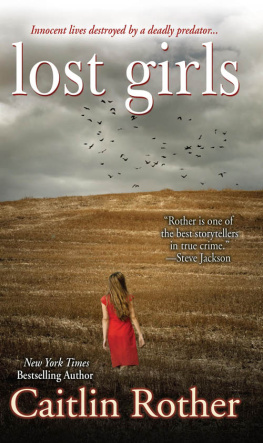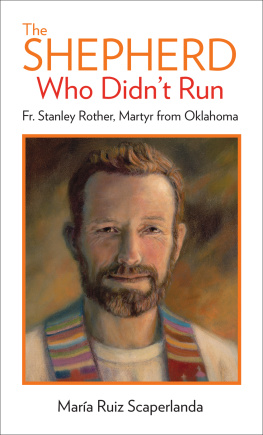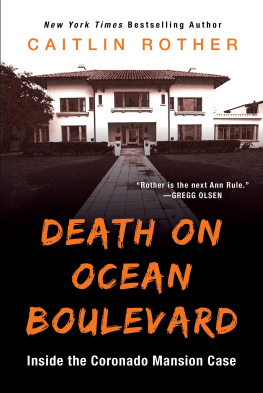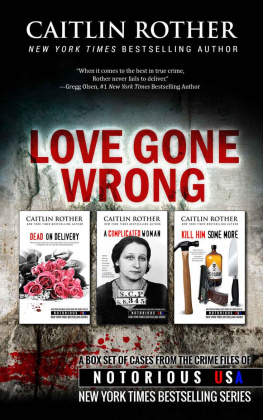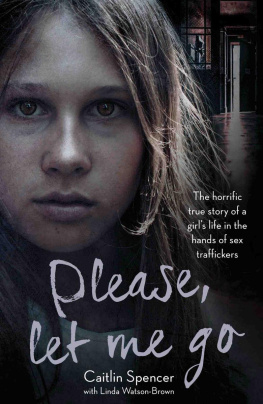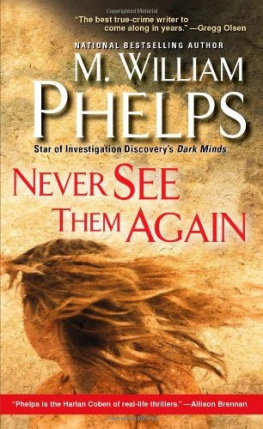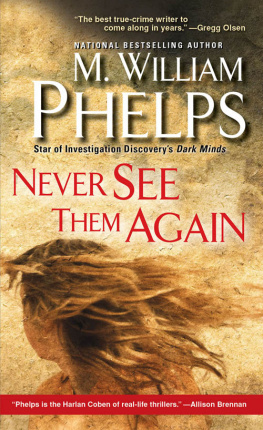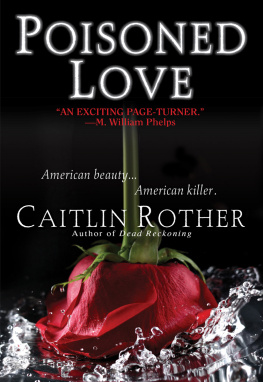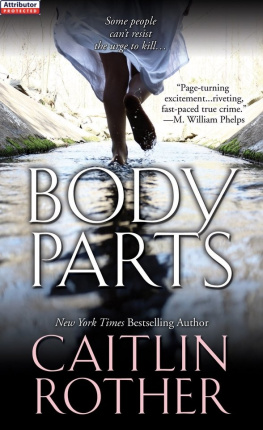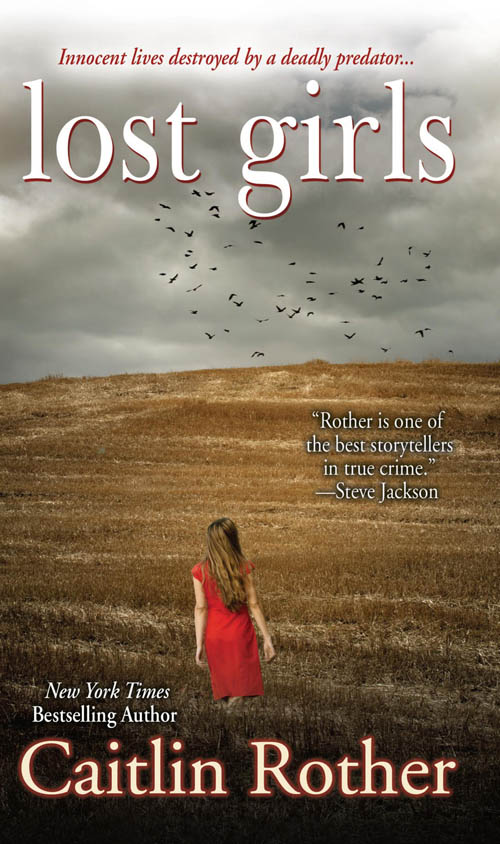Epilogue:
A F IVE -H OUR C ONVERSATION WITH J OHN G ARDNER
First I have a confession to make. After writing Body Parts, a book about serial rapist-killer Wayne Adam Ford, I really didnt think Id ever be able to stand getting into the head of another man like him, let alone one who had molested, raped and killed teenagers. I also have a standing rule: I cannot and will not write stories about young murdered children. I just cant stomach it.
But on March 4, 2010, the day after John Gardner was arraigned for killing Chelsea King, and the same day he told his attorneys he could lead them to Ambers body, I got an e-mail from an editor at Tina Browns national online publication, The Daily Beast (which has since merged with Newsweek) , asking if Id be interested in covering this case for them.
I said yes, and spent fourteen hours researching and writing the first article. The following week, I wrote a second one, which was difficult because Dumanis had issued her gag order e-mail, and the judge had put the actual gag order in place. But, after watching my own community reeling from the emotional fallout of this case, I was feeling it too.
By then, I was hooked, and I felt that this story warranted a book-length telling. But for me to move forward, I had to convince myself that Chelsea and Amber werent children, even though some folks might disagree. Still, because of their age and out of respect to their families, I knew I had to be extremely sensitive and thoughtful about how I wrote this book.
Following my usual methodology, I read every article and collected every piece of information I could, trying to determine if I could go further than the mainstream media. With the crazy amount of coverage, I was a bit worried at first. However, after a long series of calls and e-mails, I was able to persuade John Gardners family to open up to me.
Knowing that I could tell the backstory of how he evolved into the man who could commit these heinous acts, I felt I could go deeper than any reporter had gone before me. And despite the dark subject matter, that passion energized me. I felt this book was more important than some of my earlier works because people are so scared of losing their children to sexual predators. Yet, we, as a society, seem to have so little understanding of these men and how to deal with them.
The Gardner-Osborn family and I share a hope that this book will help educate people by delving into all the factors that contributed to making John Gardner into a man who could not control his sexual and homicidal compulsions, and by casting a spotlight on the flawed system that allowed him and predators like him to roam free to prey on children, teenagers and grown women.
Although theyve since become pessimistic that anything they say will help, Im still hopeful that the idealism that drove me into journalism years ago was right and true, and that this story will give unprecedented insight into all the facets of a sex offender like John Gardnerthe sweet, nurturing, loving and goofy guy his family once knew, the guy who seemed friendly and normal to people at the dog park, as well as the angry, manipulative and violent man who brutally killed these poor girls. I hope we, as a society, can find ways to help people like him before they get to a breaking point or to stop them from doing harm after theyve reached it, and to protect ourselves and our families from falling to the same fate as Amber Dubois, Chelsea King and Candice Moncayo.
I did try to speak with Candice, as well as Chelseas and Ambers families, so I could pay a more personal tribute to each victim. However, they chose not to be interviewed for this book. As a result, I respectfully crafted their stories from their own words in public comments to the media, public records and details I collected from interviews with law enforcement and other sources.
I understand that this was such an enormously traumatic event in their lives. While some victims and their families have cooperated fully with me in my previous books, and have told me they found relief in doing so, I can see that others might find it too painful. I think we all want to change the system in a positive way, to save lives and to keep this from happening again. This is my way, and I hope they find some peace and success in theirs.
Although I had exchanged a few letters with Gardner, I waited until I was almost finished with my research and writing my first draft to visit him, so I could be fully prepared. The night before my interview, I woke up every half hour, anxious about sitting across from a man with a trigger temper. I was also worried I wouldnt get any sleep before the 4:00 A.M. alarm went off at my friends house in L.A., a halfway point on my route to Corcoran State Prison.
This chapter was written after that interview, which took place on June 25, 2011, on a very hot day in the air-conditioned visiting room in the Protective Housing Unit (not to be confused with the Secure Housing Unit, known as the shoe to the frequent visitors I met on the Corcoran bus). I sat across from Gardner for five intense hours, scribbling frantically in tiny letters on the mere ten pages of paper I was allowed to bring inno tape recorders or notebooks allowed, no underwire bras, no manuscript to fact-check details. Also, there was no pane of protective glass between us.
Id been hoping to catch a glimpse of a triumvirate of evil that day, including Charles Manson and Phillip Garrido (the man who held Jaycee Dugard hostage and repeatedly raped her for eighteen years). Garrido, though, had not been brought to the unit yet, and Manson had no visitors that day. But, believe me, I had plenty to keep me occupied.
Cathy Osborn had already warned me that her son had gained a hundred pounds in the past year from his new medications, prison food and a lack of exercise, so I wasnt surprised when Gardner came out in his powder blue prison scrubs. His face and body were quite a bit fuller than when Id seen him on TV, when hed weighed 230 pounds.
He was friendly and charming from the outset. He shook my hand and smiled, and we sat across from each other at a rickety round table near the guard station. I sensed a strange smell coming from him that clicked later when Linda the paralegal e-mailed me about their Starbucks meeting in 2008. It wasnt a body odor, but it was odd, and neither Linda nor I could really identify it.
As I walked over to the vending machines to buy us drinks (prisoners are not allowed to touch money), I could feel Gardner watching me, but Id purposely worn loose pants and a long-sleeved button-up shirt. I tried not to think about it. What I was most concerned about was not making him erupt with anger as he had at the sentencing hearing; I had visions of him lunging across that table and grabbing me before the guards could stop him. As it turned out, our conversation was surprisingly relaxed, despite the subject matter, as he made self-deprecating jokes and tried to laugh away his fate in the retirement home, as he called it.

